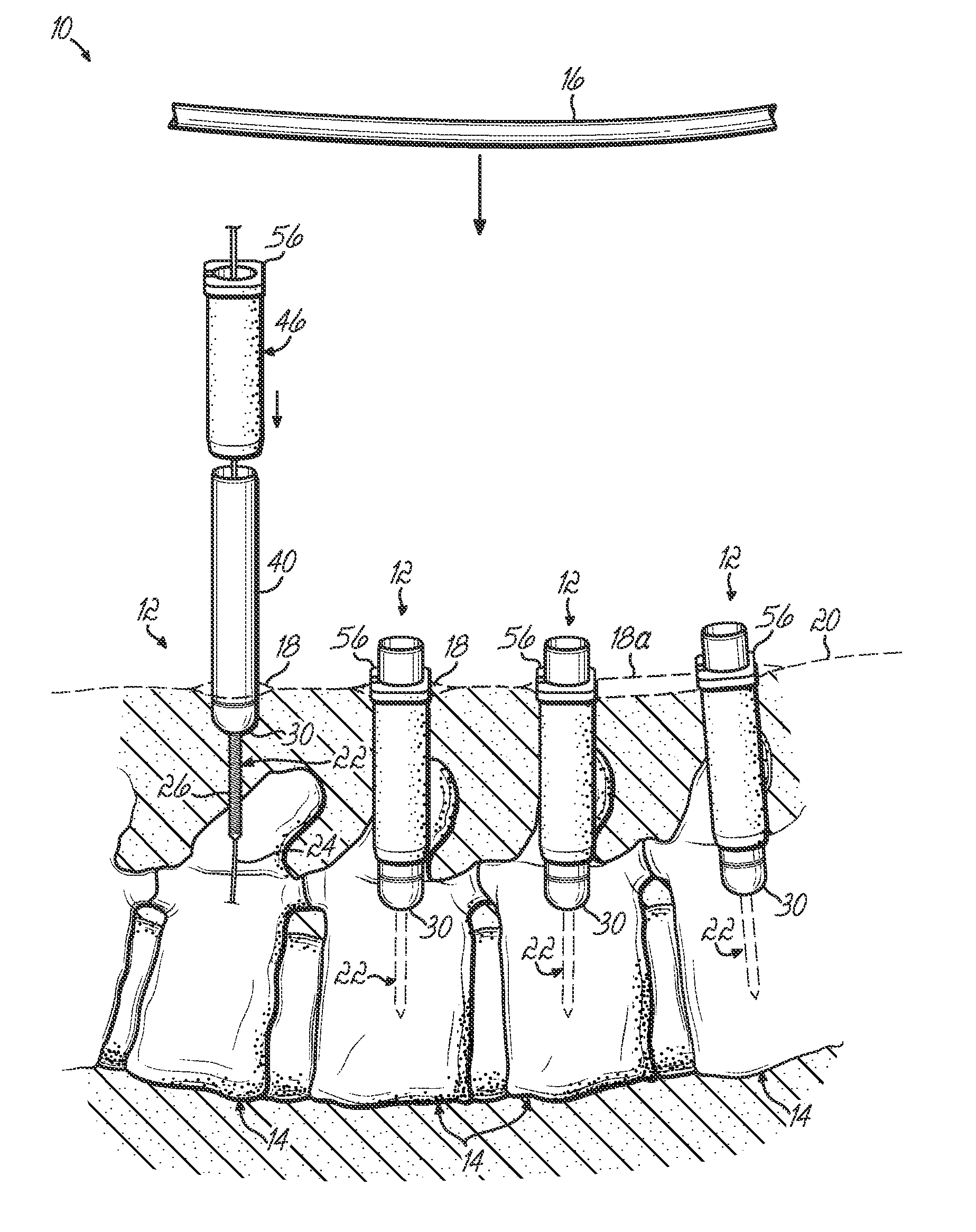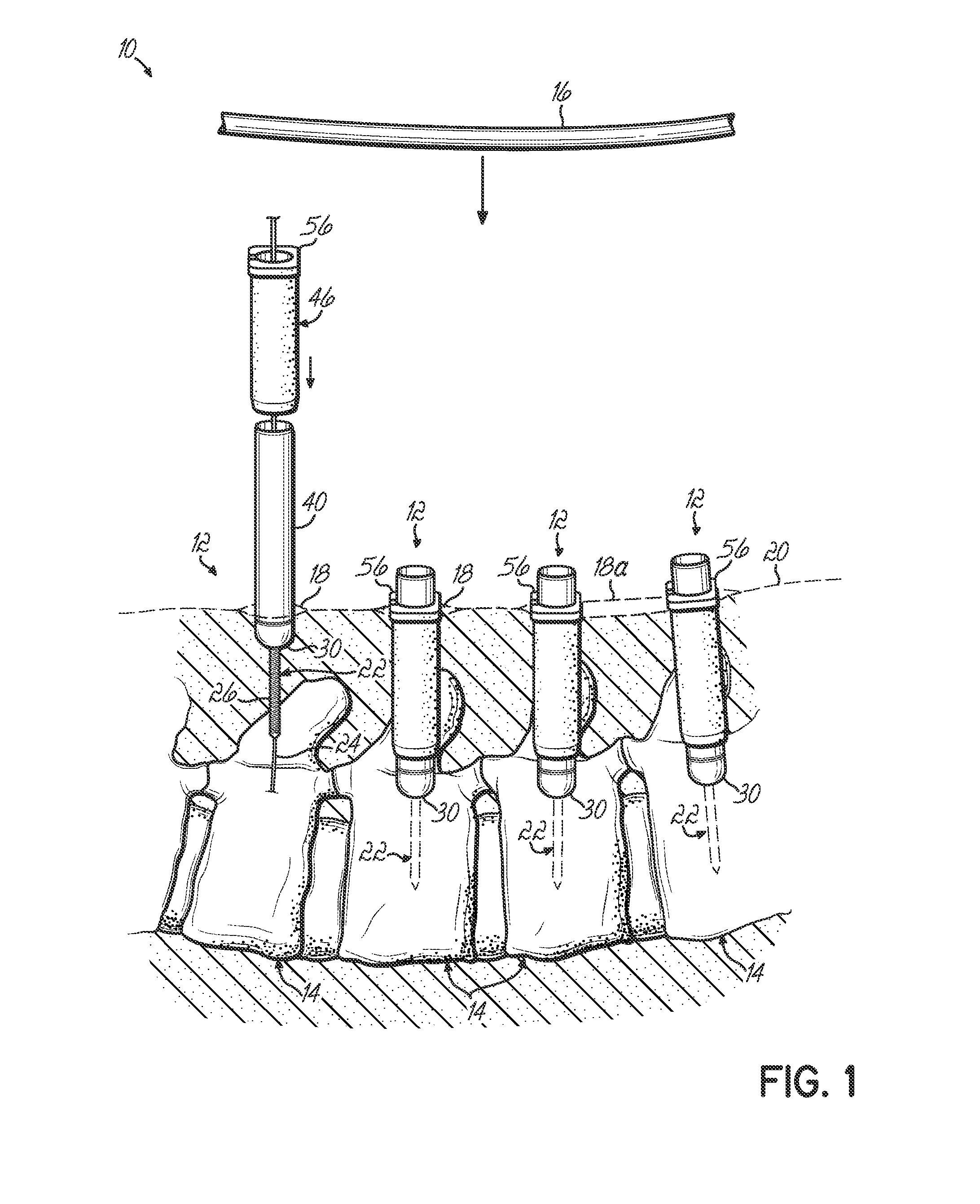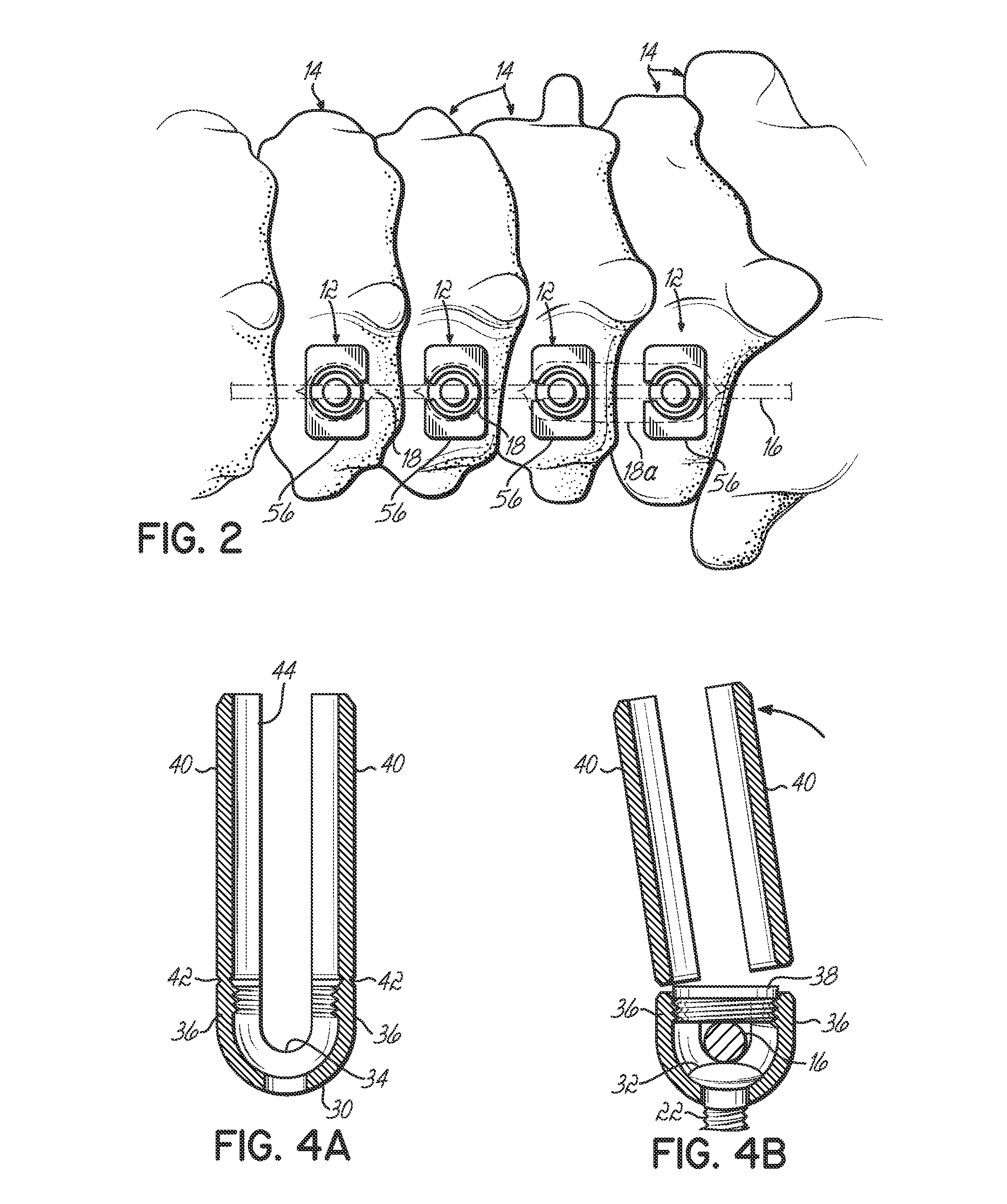Minimally invasive pedicle screw access system and associated method
- Summary
- Abstract
- Description
- Claims
- Application Information
AI Technical Summary
Benefits of technology
Problems solved by technology
Method used
Image
Examples
Embodiment Construction
[0020]Referring to FIG. 1, various embodiments of a minimally invasive spinal fixation construct 10 and associated installation method are shown. The spinal fixation construct 10 includes a number of pedicle screw assemblies 12, each of which is inserted into selected vertebrae 14 of a patient. The pedicle screw assemblies 12 are joined together in the spinal fixation construct by a spine rod 16. According to various aspects of this invention, the individual pedicle screw assemblies 12 may be inserted into the patient through discrete and often individual incisions 18 in the patient's skin 20. In certain instances, a single incision 18a may be available to provide installation of multiple pedicle screw assemblies 12 in adjacent vertebrae 14 as shown in FIGS. 1 and 2. The small, discrete incisions 18 provide the opportunity for insertion of a cannulated pedicle screw 22 via a K-wire 24 inserted through the incision 18 to the precise location on the vertebrae 14 for proper installatio...
PUM
 Login to View More
Login to View More Abstract
Description
Claims
Application Information
 Login to View More
Login to View More - R&D
- Intellectual Property
- Life Sciences
- Materials
- Tech Scout
- Unparalleled Data Quality
- Higher Quality Content
- 60% Fewer Hallucinations
Browse by: Latest US Patents, China's latest patents, Technical Efficacy Thesaurus, Application Domain, Technology Topic, Popular Technical Reports.
© 2025 PatSnap. All rights reserved.Legal|Privacy policy|Modern Slavery Act Transparency Statement|Sitemap|About US| Contact US: help@patsnap.com



